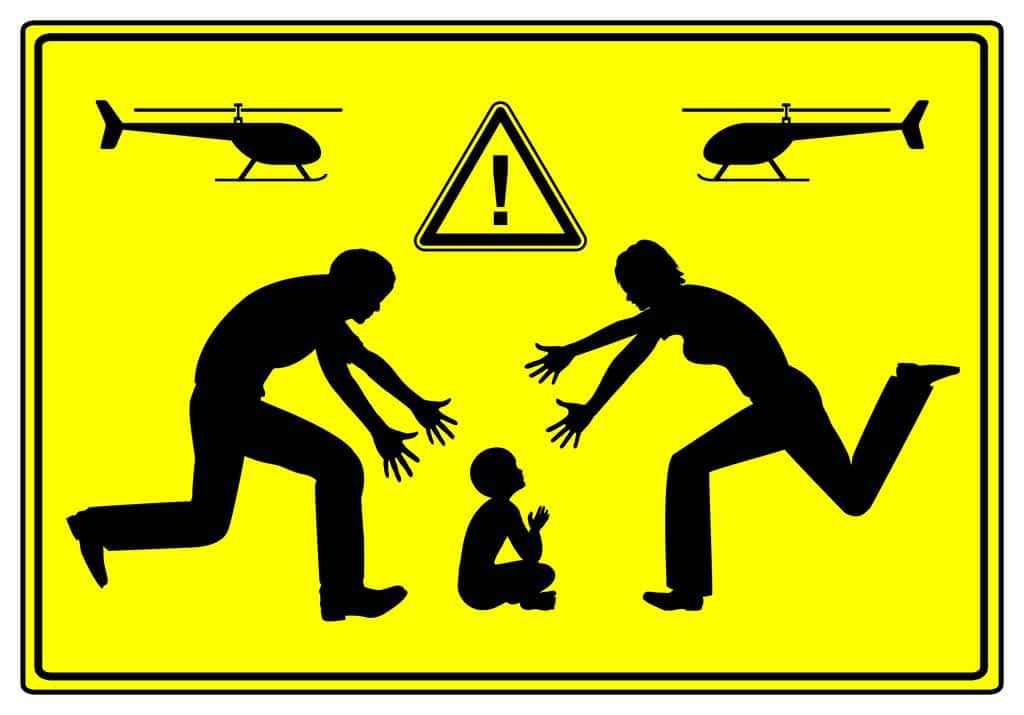Avoid These 18 Relationship Deal Breakers at All Costs
Sometimes it’s not the big dramatic betrayals that shake a relationship. Relationship deal breakers don’t always start off as obvious red flags. They can sneak up on you, those slow burns that turn into full-blown emotional wildfires if left unchecked. And according to surveys, a whopping 89% of people say unchecked bad hygiene alone is enough to call it quits. So yeah, some of these “little things” are really things that destroy relationships in disguise.
If you’re single, dating, or deep into a relationship, knowing your deal breakers, and spotting them early, can save you a lot of heartache later. So let’s get into the 18 relationship deal breakers that are more than just pet peeves. They’re the silent saboteurs, the slow leaks, the patterns that can turn love into resentment if you’re not careful.

💡Key Highlights:
- Why some problems aren’t just “quirks”
- What gets overlooked until it’s too late
- How certain behaviors quietly unravel love
- When compromise crosses a line
- The one thing you can’t fix for someone else

18 Relationship Deal Breakers You Should Never Ignore
- Lack of Respect, Dismissiveness, and Abuse:
There’s never a valid reason to tolerate abuse, whether it’s verbal, emotional, or physical. If you’re always walking on eggshells, apologizing just for being yourself, or feeling small and unseen, that’s more than just a red flag. It’s a relationship deal breaker. These patterns aren’t just harmful, they’re some of the biggest things that ruin relationships and slowly chip away at your confidence and mental health. Real love is built on mutual respect, and once that’s gone, staying only leads to more damage.
- Dishonesty and Betrayal:
Trust is the foundation everything else rests on. When lies, infidelity, or constant broken promises enter the picture, they start chipping away at that foundation, leaving behind doubt and emotional instability. And while it’s true that forgiveness can heal some wounds, repeated dishonesty points to a deeper lack of respect and integrity. These are the kinds of things that ruin relationships, not always in a big, dramatic way, but slowly, and quietly.
- Fundamental Value Clashes:
Compromise is part of any healthy relationship, but some values just aren’t up for debate. If you’re constantly clashing over deeply held beliefs, whether it’s religion, ethics, or how you view the world, and it can create ongoing tension that wears you down. These differences might not seem like a big deal at first, but over time, they become things that destroy relationships. You shouldn’t have to shrink your values to keep the peace. The right partner will respect what matters most to you, and ideally, share some of those core convictions.

- Unrealistic Expectations and Emotional Dependency:
Love isn’t supposed to feel like a cage. Real connection leaves room for breathing, growing, and just being yourself. When a partner constantly needs reassurance, tries to control your time, or relies on you to meet all their emotional needs without giving much back, it creates a one-sided dynamic that slowly drains you. That kind of imbalance is one of those sneaky things that ruin relationships over time. Healthy love means supporting each other, not losing yourself in the process. Look for someone who celebrates your independence and wants to grow with you, not over you.
- Financial Irresponsibility and Disagreements:
Money alone doesn’t make or break a relationship, but how it’s handled definitely can. When one partner hides spending, racks up debt without discussing it, or simply refuses to plan for the future, it creates cracks in trust that are hard to patch up. Financial secrecy and irresponsibility are common things that destroy relationships, not just because of the money itself, but because of what it represents: a lack of respect, and transparency.
- Unwillingness to Grow and Evolve:
Change is a natural part of life, and if you’re in a relationship, growing together is key. When your partner refuses to take accountability, resists personal growth, or shuts down your efforts to evolve, it creates a disconnect that only widens with time. That kind of emotional stagnation is one of those overlooked things that ruin relationships. You need someone who’s not just along for the ride, but willing to grow, reflect, and adapt with you.
- Lack of Empathy and Compassion:
Emotional connection forms the heart of any meaningful relationship. A partner who lacks empathy, fails to understand your perspective, or disregards your feelings creates a disconnect that can lead to emotional loneliness. While everyone expresses empathy differently, consistent disregard for your emotions signals a mismatch in emotional compatibility.
- Unresolved Trauma and Baggage:
Everyone has a past, and a little emotional baggage is totally normal. But when someone’s unresolved trauma starts spilling into the relationship and they’re not willing to do the work to heal, it can create a heavy, constant strain. Over time, that emotional weight becomes one of those quiet things that destroy relationships.

- Addiction and Unmanaged Mental Health:
Support matters a lot, but when your partner is dealing with addiction or mental health challenges and isn’t getting the help they need, it can put serious pressure on your relationship. This is one of those things that can quietly destroy relationships if left unaddressed. It’s important to protect your own well-being by setting clear boundaries. You can encourage your partner to get support, but you’re not responsible for fixing their struggles alone. Taking care of yourself has to come first.
- Constant Criticism and Negativity:
Negativity is like poison in a relationship. When your partner constantly criticizes, puts you down, or brings a cloud of pessimism everywhere they go, it creates an environment that’s draining and damaging. Over time, this kind of toxicity eats away at your confidence and happiness and is definitely one of the biggest things that ruin relationships. Constructive feedback is one thing, but constant negativity is a deal breaker for your emotional well-being. Find someone who lifts you up and cheers you on, not someone who drags you down.
- Lack of Intimacy and Connection:
Emotional and physical intimacy are essential for a fulfilling relationship. If your partner regularly holds back affection, ignores your emotional needs, or keeps you at arm’s length, it can leave you feeling lonely and frustrated. Talking openly about what you want and need is key, but if that distance doesn’t shrink, it could be a sign of deeper issues that quietly destroy relationships. Emotional intimacy is non-negotiable.

- Unequal Workload and Disrespectful Dynamics:
A healthy relationship depends on balance and respect. When one person ends up doing most of the housework or emotional heavy lifting while the other checks out, resentment builds fast. This kind of imbalance is one of the common things that ruin relationships because it chips away at trust and steals the teamwork that relationships need to thrive.
- Controlling Behavior and Isolation:
Control and coercion have no place in love. When a partner tries to dictate what you do, cuts you off from friends or family, or makes all the decisions, it chips away at your independence and self-respect. This kind of behavior is one of the biggest things that destroy relationships because it suffocates who you are. Keep nurturing your own independence, and set firm boundaries to protect your freedom and sense of self.
14. Lack of Trust and Respect for Personal Space:
Healthy relationships respect personal boundaries and personal space. If your partner invades your privacy, ignores your need for space, or keeps tabs on everything you do, it shows a serious lack of respect and trust. This kind of behavior is a classic example of things that ruin relationships because it chips away at your sense of freedom and self-worth.

- Unhealthy Communication and Conflict Resolution:
Good communication is the foundation of any healthy relationship. When every disagreement turns into defensiveness, or a refusal to meet halfway, problems pile up and resentment grows. That’s one of the biggest things that destroy relationships over time. Look for a partner who’s willing to listen, respect your point of view, and work with you to find solutions that work for both of you.
- Anger Issues:
This is major because it can quickly spiral into something dangerous. Everyone gets frustrated sometimes, but when a partner struggles with uncontrolled anger regularly, it’s one of those things that destroy relationships, making an atmosphere of fear and instability that’s really unhealthy. It’s important to tell the difference between occasional outbursts and a pattern of explosive behavior that puts your emotional safety at risk.
- Differing Views on Parenthood:
Deciding whether or not to have kids is one of those deeply personal choices that can cause serious tension between partners. When you and your partner are on completely different pages about parenthood, it can create a gap that’s tough to close. Respecting each other’s dreams and wishes is key, but if that divide feels too big to overcome, it might be one of those relationship deal breakers that signals a bigger incompatibility.
- Poor Hygiene and Unhealthy Habits:
Physical attraction plays a big role in any relationship. When a partner consistently ignores basic hygiene or won’t address cleanliness concerns, it can seriously block intimacy and make things uncomfortable. Everyone’s standards might be a little different, but it’s important to be with someone who takes care of themselves. This is one of those things that ruin relationships faster than you might expect because it gets old quick.

Navigating the Relationship Deal Breakers Minefield
Relationship deal breakers aren’t about nitpicking or looking for the perfect partner. They’re about protecting your peace, your values, and your future happiness.
Every relationship hits bumps, but knowing the things that destroy relationships for you can keep you from falling into patterns that drain you emotionally or leave you second-guessing your worth. The truth is, it’s often the subtle, day-to-day habits – the little things that ruin relationships and slowly chip away at the foundation. You don’t need to wait for something catastrophic. Trust your gut early and often.
✨ Check in with yourself – Get clear on what truly matters to you. What are the values you refuse to compromise on? What behaviors send up red flags, even if no one else sees them?
🗣️ Have the hard conversations – The sooner you talk openly with your partner about boundaries and expectations, the better. You’re not being “too much” – you’re being honest. And that’s what real connection needs.
🧠 Talk to a pro if needed – Whether you’re questioning a current relationship or sorting through patterns from the past, therapy can offer huge clarity. Some of the most common things that destroy relationships go unaddressed for years. Getting help isn’t weakness, it’s strength.
💗 Love yourself harder – You deserve a relationship that feels like alignment, not struggle. Don’t settle for anything less than someone who sees, respects, and supports the real you.
🌱 Leave room to grow – You’re going to change. So will your partner. Make space for that evolution and be honest with yourself when something no longer fits, even if it once did.
👀 Trust yourself – If something feels off, it probably is. Pay attention. One of the biggest things that ruin relationships is ignoring that little voice in your head waving the red flag.
👉And finally – surround yourself with people who remind you of what healthy love looks like. It can be friends, chosen family, or even online communities. Being around the right energy will help you raise your standards and never shrink to fit inside a relationship that isn’t worthy of you.
Before You Go…
If you are looking for a more in depth guide on relationship deal breakers – I highly reccommend this book:
‘Deal Breakers’: Dr. Bethany Marshall’s Guide to Healthy Relationships“
Are you tired of questioning your worth in relationships with emotionally unhealthy men? Dr. Bethany Marshall’s book, ‘Deal Breakers,’ is your roadmap to freedom from relationship purgatory. Discover how to identify your non-negotiable boundaries and take back control of your happiness. Through relatable case studies and actionable advice, this book empowers women to redefine their relationships on their terms. Say goodbye to endless struggles and hello to the fulfilling love you deserve.

Thank you for reading this post, don't forget to subscribe!







